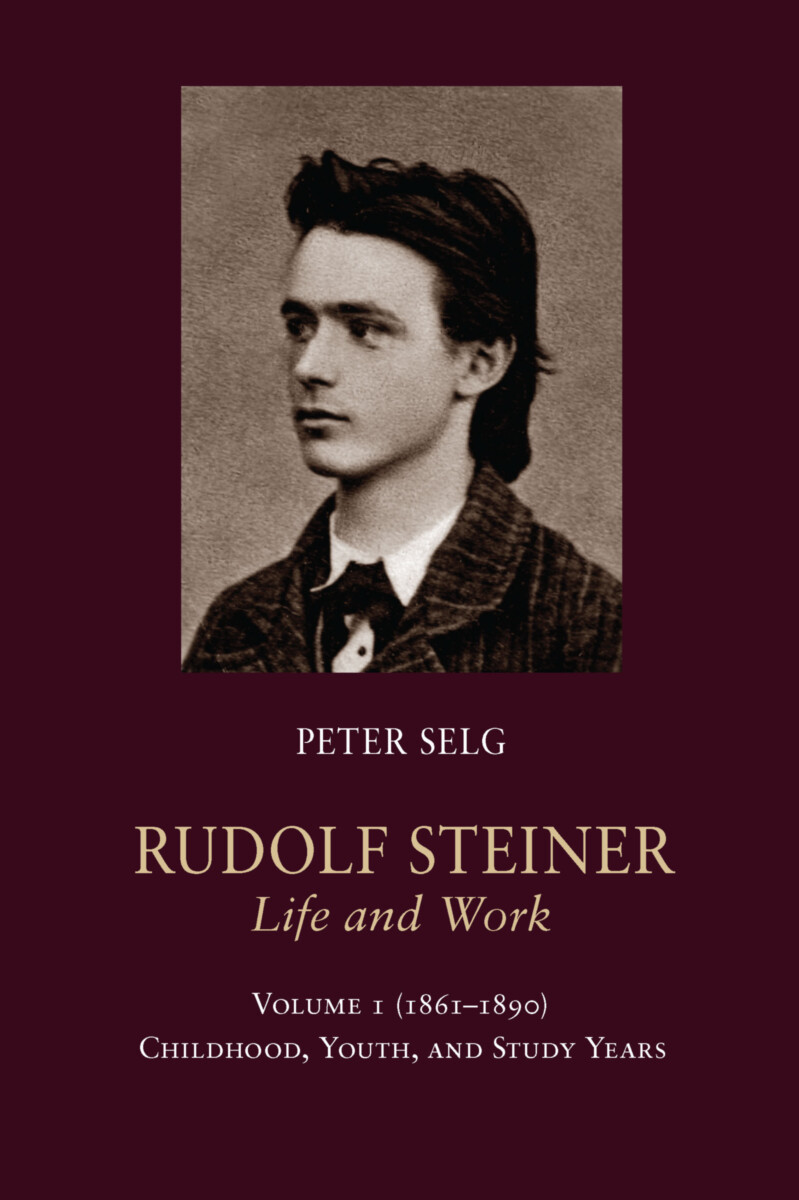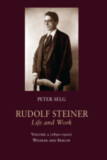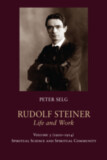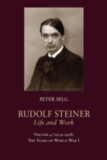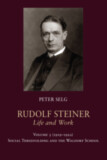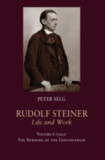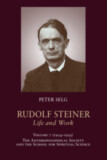Rudolf Steiner, Life and Work
1861–1890: Childhood, Youth, and Study Years
- Publisher
SteinerBooks - Published
5th June 2014 - ISBN 9781621480839
- Language English
- Pages 320 pp.
- Size 6" x 9"
- Images 40
- Publisher
SteinerBooks - Published
5th June 2014 - ISBN 9781621480822
- Language English
- Pages 320 pp.
- Size 6" x 9"
- Images 40
“I have never in my life pursued personal ambitions, nor will I in future.” — Rudolf Steiner
To acknowledge and understand Rudolf Steiner’s unique achievement and life’s work, one must be able to accept that the founder and spiritual researcher of Anthroposophy was “a citizen of two worlds”—both the spiritual and the physical. Anthroposophy teaches that this duality, rather than being a quality reserved for special individualities, is inherent to human nature. According to Rudolf Steiner, it is a central aspect of being human, even in times when the suprasensory aspect of humanity is eclipsed (for ordinary day consciousness) and almost eliminated by certain civilizations.
The interest in Rudolf Steiner’s person and essence, in his attitude toward life and work, will continue to grow in the decades and centuries that lie ahead, both within and outside the anthroposophical movement. It will take hold of entirely different groups of people, including those who come with spiritual questions or discover them in times of need. Rudolf Steiner’s work grew to be “one unique effort of bringing courage to human beings” (Michael Bauer).
This is the first of seven comprehensive volumes on Rudolf Steiner’s “being, intentions, and journey.” It presents Rudolf Steiner from childhood and youth through his doctorate degree and up to the time of his work for the Goethe Archives as editor of Goethe’s scientific writings. By considering his formative years in depth, we come to understand better the roots and development of Rudolf Steiner’s later spiritual research and teachings.
“In the night of January 10 [1880], I did not sleep a wink. I studied certain philosophical problems until half past twelve, when I finally lay down. In the year before I had tried to find out whether Schelling was right in saying, ‘We all have a secret and wondrous capacity of withdrawing from temporal change into our innermost self, which we divest of everything external. And there, in the form of immutability, we behold the eternal.’ I believe that I have found this innermost capacity within me. I have had an intuition for some time. I now see the whole idealistic philosophy in a new way. What is a sleepless night compared to such a discovery!” — Rudolf Steiner (letter to a friend, Jan. 1881)
Rudolf Steiner, Life and Work, Seven Volumes
Vol. 1. (1861–1890): Childhood, Youth, and Study Years
(ISBN: 9781621480822 Pbk – ISBN: 9781621480839 Hbk)
Vol. 2. (1890–1900): Weimar and Berlin
(ISBN: 9781621480853 Pbk – ISBN: 9781621480860 Hbk)
Vol. 3. (1900–1914): Spiritual Science and Spiritual Community
(ISBN: 9781621480884 Pbk – ISBN: 9781621480891 Hbk)
Vol. 4. (1914–1918): The Years of World War I
(ISBN: 9781621481577 Pbk – ISBN: 9781621481584 Hbk)
Vol. 5. (1919–1922): Social Threefolding and the Waldorf School
(ISBN: 9781621481935 Pbk – ISBN: 9781621481942 Hbk)
Vol. 6. (1923): The Burning of the Goetheanum
(ISBN: 9781621482192 Pbk – ISBN: 9781621482208 Hbk)
Vol. 7. (1924–1925): The Anthroposophical Society and the School for Spiritual Science
(ISBN: 9781621482321 Pbk – ISBN: 9781621482338 Hbk)
C O N T E N T S:
Introduction
1. Childhood and Youth (1861–1879)
2. Meeting Felix Koguzki and Karl Julius Schröer
3. Vienna (1879–1890)
Peter Selg
Peter Selg studied medicine in Witten-Herdecke, Zurich, and Berlin and, until 2000, worked as the head physician of the juvenile psychiatry department of Herdecke Hospital in Germany. Dr. Selg is director of the Ita Wegman Institute for Basic Research into Anthroposophy (Arlesheim, Switzerland), professor of medicine at the Alanus University of Arts and Social Sciences (Germany), and co-leader of the General Anthroposophical Section at the Goetheanum. He is the author of numerous books on Rudolf Steiner, anthroposophy, medical ethics, and the development of culture and consciousness.


